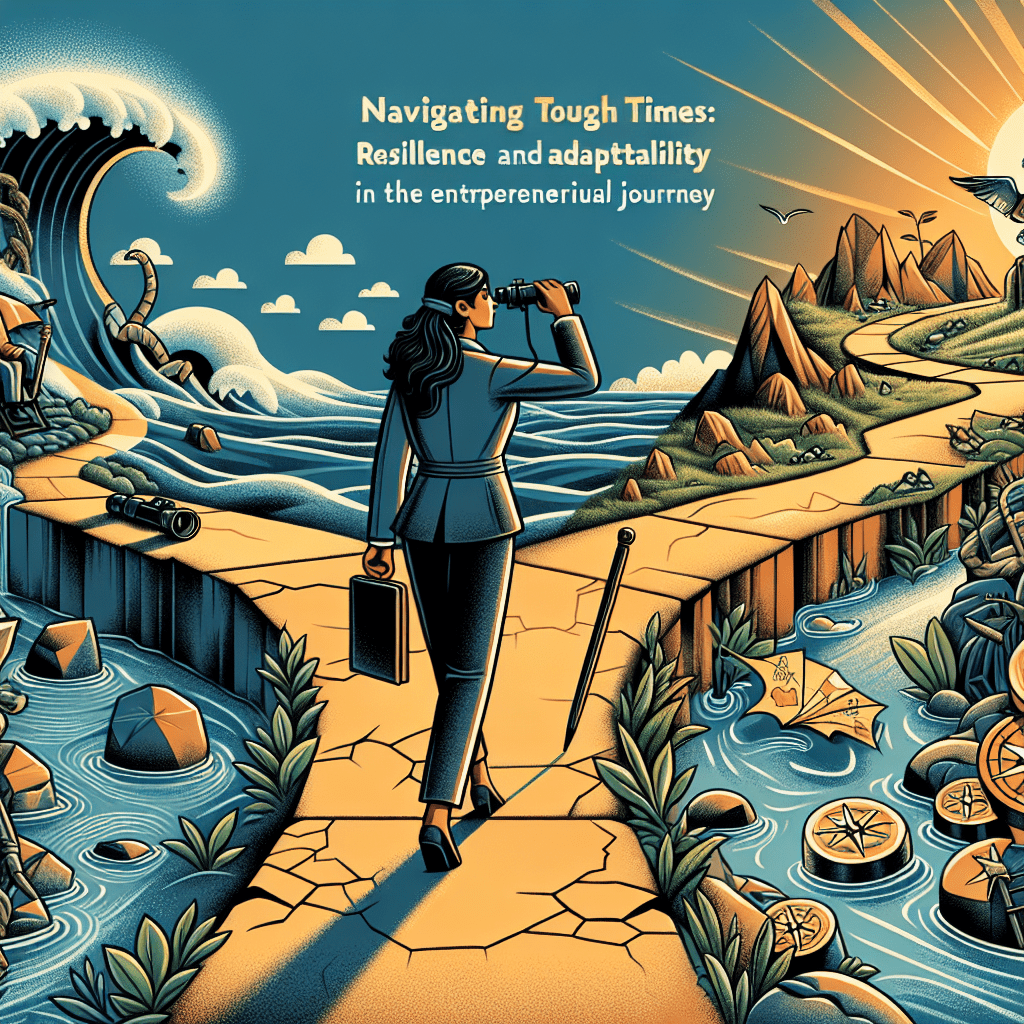Entrepreneurship is a path filled with both rewards and challenges. Many entrepreneurs start their journeys brimming with optimism and ambitious dreams. However, the road to success is often fraught with tough times that can test an entrepreneur’s resilience and adaptability. In this article, we’ll explore these concepts and offer strategies to help entrepreneurs navigate the inevitable storms they will face.
Understanding Resilience in Entrepreneurship
Resilience is the ability to bounce back from setbacks, learn from failures, and keep moving forward. It is an essential trait for entrepreneurs, as the journey to building a successful business is rarely linear.
According to research, resilience in entrepreneurship can be broken down into several key traits:
- Emotional Regulation: The ability to maintain control over one’s emotions, even in stressful situations.
- Optimism: A positive outlook that helps entrepreneurs envision a path forward despite obstacles.
- Adaptability: The capacity to adjust to new conditions and challenges effectively.
- Problem-solving skills: The ability to navigate complications and derive solutions creatively.
The Importance of Adaptability
Closely linked to resilience is adaptability. In the entrepreneurial landscape, adaptability refers to the ability to pivot business strategies in response to changing market conditions, consumer preferences, or unexpected challenges.
Entrepreneurs who cultivate adaptability can survive and thrive even when external circumstances shift dramatically. The following elements highlight the importance of adaptability:
- Market Responsiveness: Understanding consumer needs and behavior shifts and adjusting offerings accordingly.
- Innovation: Continuously exploring new ideas and finding ways to improve products or services.
- Agility: Being proactive in decision-making and quick to implement changes.
Strategies for Building Resilience and Adaptability
While some may view resilience and adaptability as inherent traits, they can be developed and honed. Here are several strategies to help entrepreneurs nurture these qualities:
1. Embrace a Growth Mindset
Individuals with a growth mindset believe that they can improve through dedication and hard work. Embracing this mindset can motivate entrepreneurs to learn from failures and view challenges as opportunities for growth.
2. Build a Support Network
Isolation can be detrimental for entrepreneurs. Surrounding oneself with a supportive community, including mentors, peers, and professional networks, provides encouragement and advice during tough times.
3. Focus on Self-Care
Maintaining physical and mental health is paramount. Regular exercise, a balanced diet, and mindfulness practices such as meditation can enhance an entrepreneur’s resilience.
4. Set Realistic Goals
Setting short-term achievable goals can provide a clearer path forward. These goals can keep motivation high and help entrepreneurs remain focused, even during challenging periods.
5. Foster an Adaptable Culture
If leading a team, instilling a culture of adaptability within the organization is essential. Encourage team members to share ideas and foster an environment where experimentation is welcomed.
Learning from Real-World Examples
Throughout history, many entrepreneurs have faced significant hardships and emerged victorious by harnessing resilience and adaptability.
Example 1: Howard Schultz and Starbucks
Howard Schultz, the former CEO of Starbucks, faced numerous challenges, including an economic downturn and corporate scandals. By adapting the company’s menu and store strategies while focusing on customer experience, Schultz managed to revitalize the brand and restore profitability.
Example 2: Sara Blakely and Spanx
Sara Blakely, founder of Spanx, started her business with $5,000 and faced skepticism from investors. Utilizing her ability to pivot and learn from feedback, she created a popular brand that revolutionized the hosiery industry, exemplifying resilience in the face of adversity.
Conclusion
The entrepreneurial journey will always include its share of tough times. However, by cultivating resilience and adaptability, entrepreneurs can overcome challenges and foster sustainable growth. The key is to approach difficulties with a mindset geared towards learning and evolution. With the strategies outlined above, entrepreneurs can develop their ability to navigate through adversity while remaining agile and inventive.
Frequently Asked Questions (FAQs)
What is resilience in the context of entrepreneurship?
Resilience in entrepreneurship refers to the ability to bounce back from setbacks, learn from failures, and continue moving forward despite challenges.
How can I become more adaptable as an entrepreneur?
To become more adaptable, focus on learning continuously, setting realistic goals, improving problem-solving skills, and fostering an environment that encourages innovation.
What role does self-care play in building resilience?
Self-care is crucial for maintaining physical and mental health, which in turn enhances an entrepreneur’s ability to cope with stress and challenges effectively.
Can resilience be developed over time?
Yes, resilience can be developed through practice, experience, and by adopting strategies aimed at coping with stress and learning from failures.
Tip: Keep a Learning Journal
One practical tip for enhancing resilience and adaptability is to maintain a learning journal. Document your experiences, lessons learned, and strategies you implemented. Reflecting on these entries can help solidify the knowledge gained and prepare you for future challenges, thereby fortifying your mindset.
#Navigating #Tough #Times #Resilience #Adaptability #Entrepreneurial #Journey

